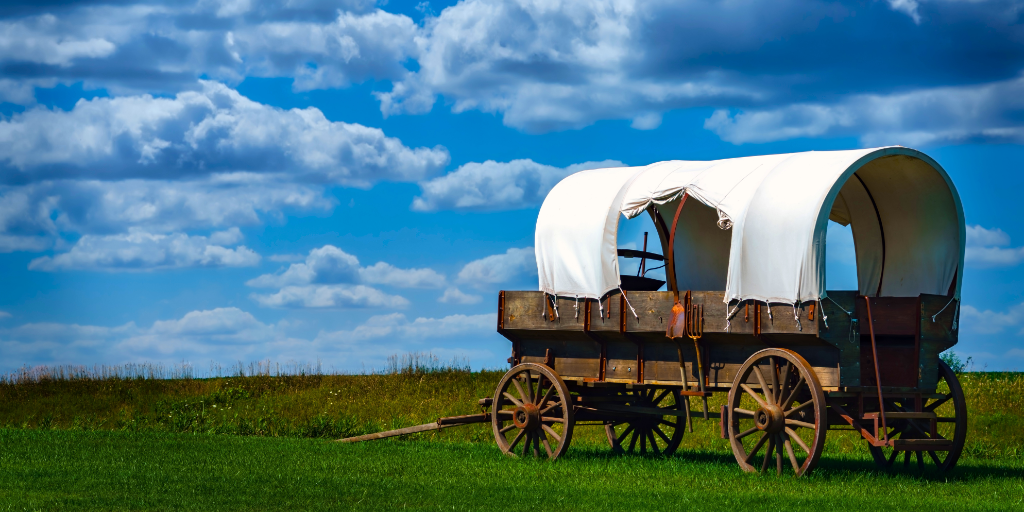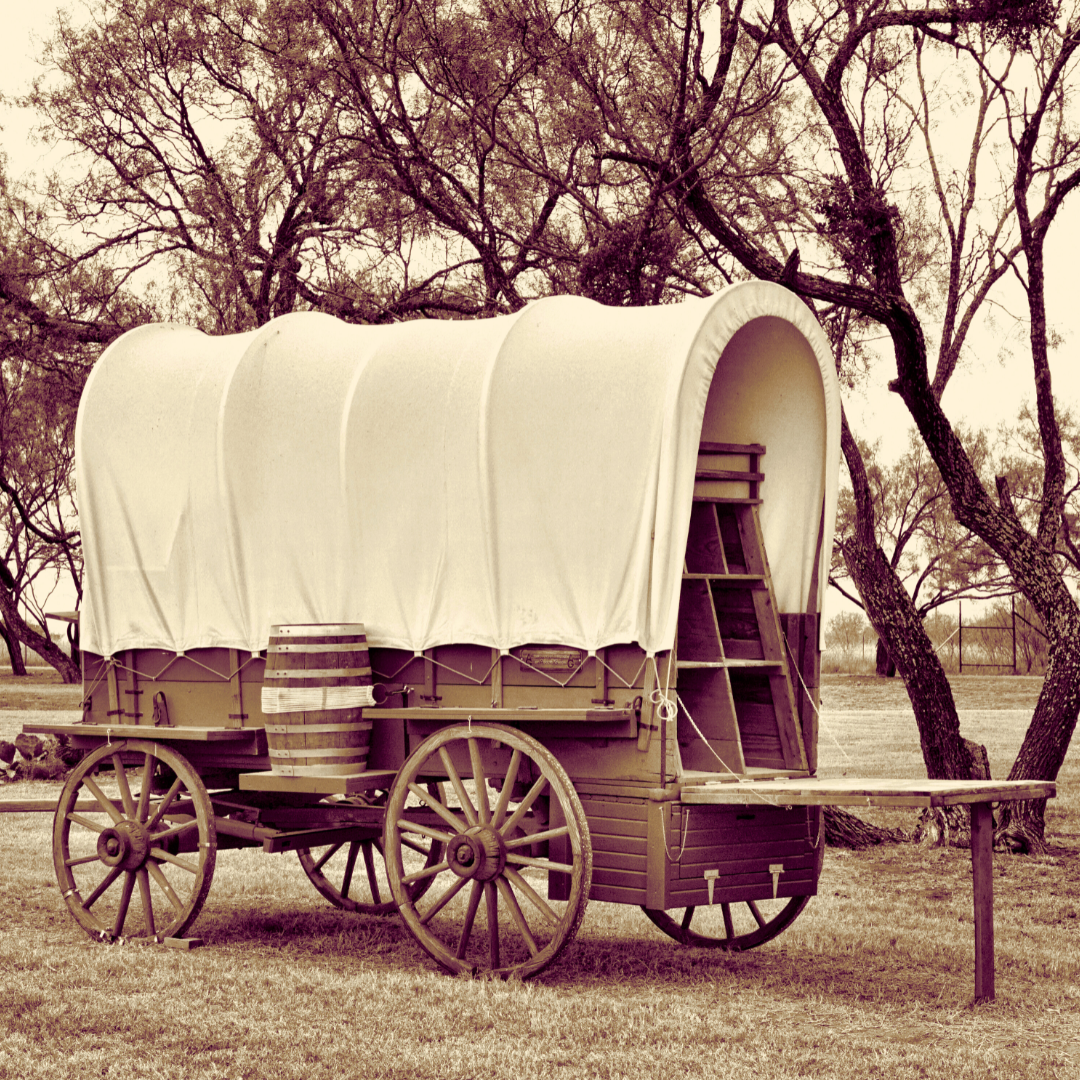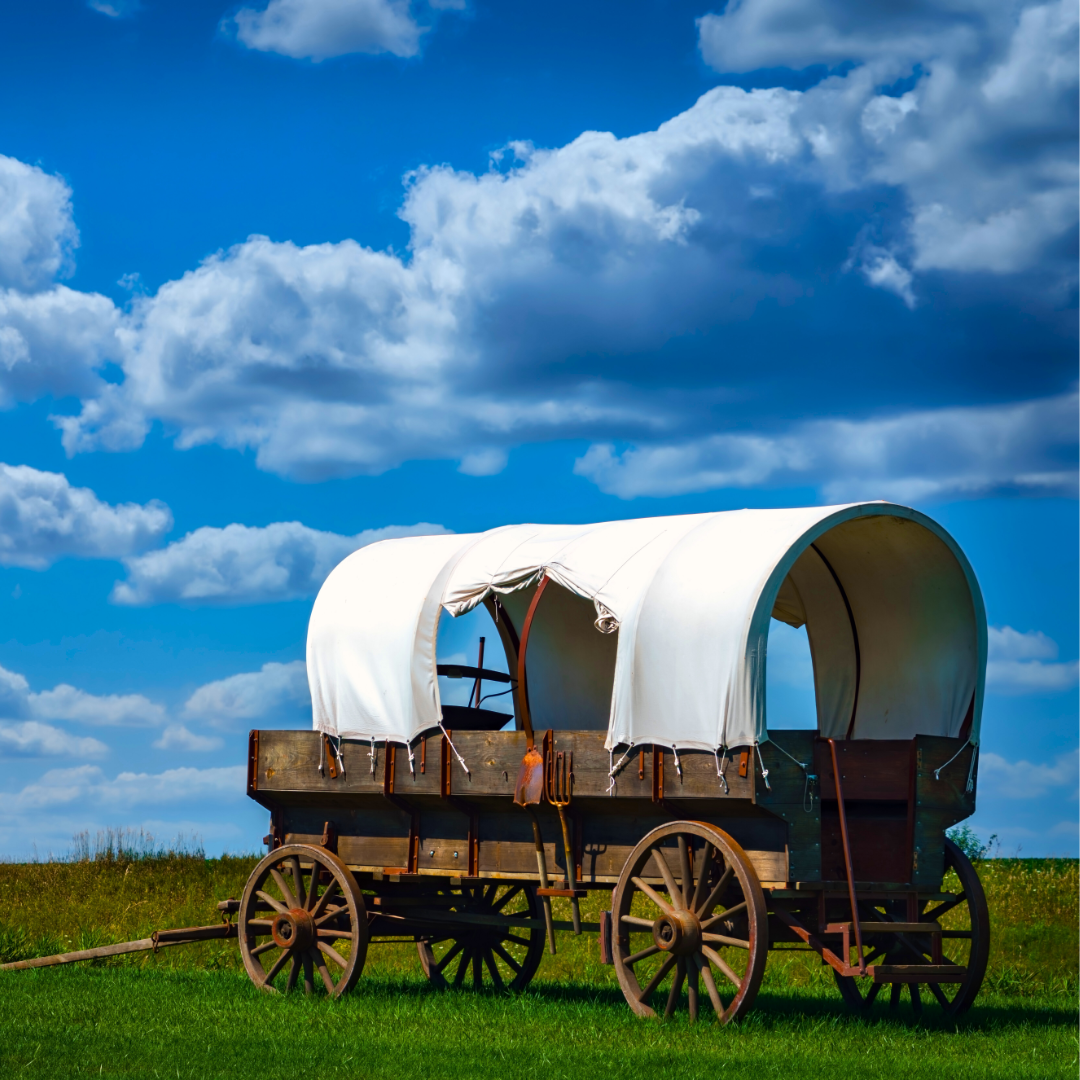
Linda Kracht, inspired by a TV miniseries, contemplates lessons learned by families migrating westward during the nineteenth century.
You are probably all aware of the TV series 1883—a American Western drama television miniseries (created by Taylor Sheridan) streaming on Paramount+. The series introduces a patriarch by the name of James Dutton and his family. The tale begins during the Civil War, progressing through 1883, 1923, and Yellowstone.
The first miniseries, 1883, portrays the struggles of the Dutton family as they move westward in hopes of reaching Oregon, despite the unknown or hidden danger and possible calamity. They soon discovered that every action and every decision could upend their dream for good. Yet, they kept going. Elsa Dutton summarized the consequences of this pursuit this way: “The further west we moved, the further we moved away from long-standing traditions.”
Elsa noted that the moving away from longstanding traditions were due to un-yielding demands of the present, their hope for a better future, and lingering disappointments from the past. She saw women shed fancy jewelry in exchange for food; crop their hair and don cowboy hats for protection from the weather; exchange fancy dress and shoes for riding pants, chaps and cowboy boots. Comfort and safety overrode their need to look attractive.
Age-old customs and beliefs disappeared along with their coveted material possessions (pianos, high-back chairs, curio cabinets) that actually prohibited passage to the promised land. Relationships ended and new ones were cultivated for a variety of reasons. They discovered there was little room for carelessness or laziness for only the brave and the hardy seemed to survive.

Do the lessons of 1883 apply today? Most of us are not physically moving westward, yet we are all challenged to move away from one longstanding tradition after another—whether it applies to our political, economic, social, psychological, emotional, or spiritual leanings, beliefs, or traditions.
What is the only thing that prevents us from losing our footing as we progress westward?
God is the Maker and the Creator, and that there is absolutely no creature not having from Him the perfection of its kind and of its substance. God is simple in that God transcends every form of complexity and composition familiar to the discursive intellect. God is, was and always will be. Human beings belong to God and they cannot be happy until they are united with him again. God alone is the life which never dies and the wisdom that needs no light besides itself, but illumines all who need to be enlightened. He is the wisdom that governs the world, down to the leaves that flutter on the trees. … Great are you, O Lord, and exceedingly worthy of praise; your power is immense, and your wisdom beyond reckoning. And so we men, who are a due part of your creation, long to praise you —we also carry our mortality about with us, carry the evidence of our sin and with it the proof that you thwart the proud. You arouse us so that praising you may bring us joy, because you have made us and drawn us to yourself, and our heart is restless until it rests in you. Grant me to know and understand, Lord, which comes first. To call upon you or to praise you? To know you or to call upon you? Must we know you before we can call upon you? Anyone who invokes what is still unknown may be making a mistake. Or should you be invoked first, so that we may then come to know you? But how can people call upon someone in whom they do not yet believe? And how can they believe without a preacher?(from Confessions by St. Augustine).
God is the only Way, Truth, and Life for all of us to search for and follow as we move westward in life.

Copyright 2023 Linda Kracht
Images: Canva
About the Author

Linda Kracht
Linda is a wife, mother of seven, and grandmother of 23. Linda is founder of Fortifying Families of Faith, LLC and her books include: Daughters Forever, Sons Forever; The Art of Breastfeeding, published by the Couple to Couple League; Mothers Forever, Fathers Forever; Surviving College; Black and White; and A Book for All Seasons.


.png?width=1806&height=731&name=CatholicMom_hcfm_logo1_pos_871c_2728c%20(002).png)
Comments